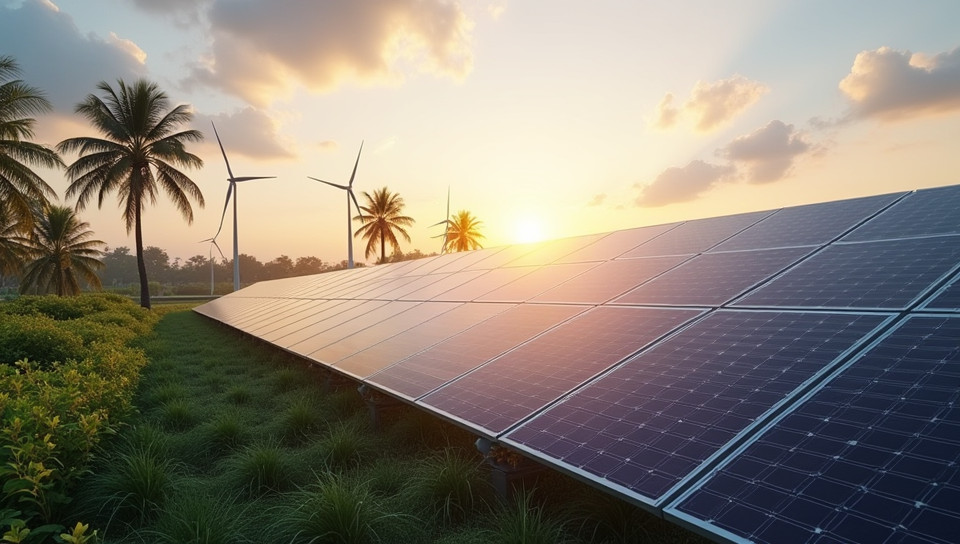Solar power is becoming a major renewable energy source 89%

The Future of Energy: How Solar Power is Revolutionizing the Industry
As we continue to grapple with the challenges of climate change, it's becoming increasingly clear that renewable energy sources are the key to a sustainable future. Among these alternatives, solar power stands out as a major player in the shift away from fossil fuels.
The Rise of Solar Power
Solar power has come a long way since its inception. With advancements in technology and declining costs, it's now more feasible than ever for individuals and businesses to invest in solar energy systems. In fact, the cost of solar panels has dropped by over 70% in the last decade alone.
Benefits of Solar Power
- It reduces greenhouse gas emissions: Solar power is a clean source of energy that produces no emissions or pollution.
- It saves money on electricity bills: By generating your own electricity, you can reduce your reliance on grid power and lower your energy costs.
- It increases property value: Installing solar panels can boost the value of your home or business.
- It provides energy independence: With a solar-powered system, you're not reliant on external power sources, giving you greater control over your energy needs.
The Impact of Solar Power on the Environment
As more individuals and businesses turn to solar power, the impact on the environment is significant. By reducing our reliance on fossil fuels, we can lower greenhouse gas emissions and mitigate the effects of climate change. Additionally, the production of solar panels requires minimal raw materials and generates no hazardous waste.
The Future of Solar Power
As technology continues to advance, it's likely that solar power will become an even more significant player in the renewable energy market. With innovations like bifacial solar panels and perovskite cells on the horizon, the potential for increased efficiency and reduced costs is vast.
Conclusion
Solar power is no longer a novelty or a niche interest – it's a major force in the shift towards renewable energy. As the world continues to transition away from fossil fuels, it's clear that solar power will play a critical role in our future. By investing in solar energy systems and supporting policies that promote renewable energy, we can create a more sustainable and equitable future for all.
- Created by: Andriy Savchenko
- Created at: Aug. 17, 2024, 9:02 p.m.
- ID: 7557

